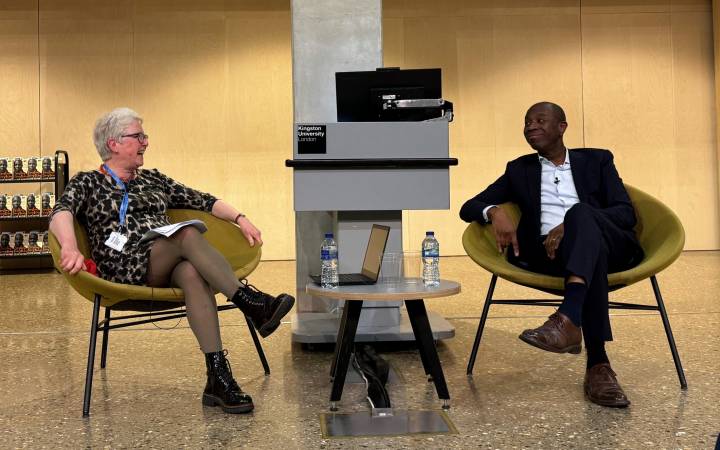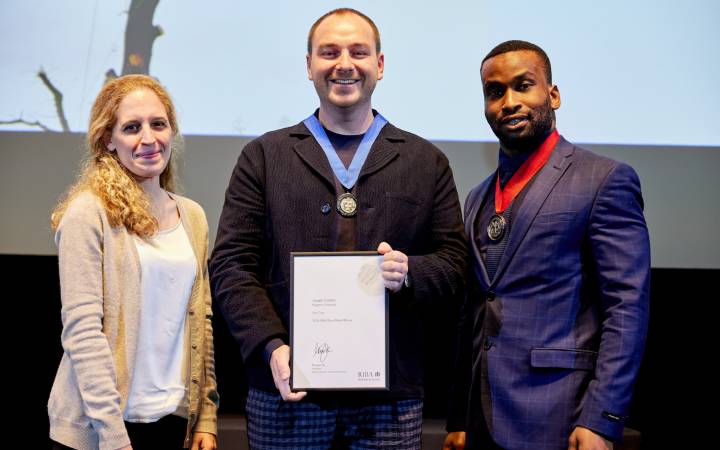Kingston University and Royal Surrey NHS Foundation Trust receives share of £4.3m government funding for vital study in to link between ethnicity and Covid-19
Posted Wednesday 2 September 2020
 Research by health psychologist Dr Tushna Vandrevala focuses on health promotion and risk prevention in vulnerable and hard to reach populations
Research by health psychologist Dr Tushna Vandrevala focuses on health promotion and risk prevention in vulnerable and hard to reach populations
Kingston University, Royal Surrey NHS Foundation Trust and a national team of researchers will examine the disproportionate mortality rates from Covid-19 among Black and South Asian communities as part of a government-funded project - which will also see the team develop key health messages to help raise awareness and engage with adversely affected groups.
The year-long study, jointly lead by Professor Aftab Ala of Royal Surrey and Dr Tushna Vandrevala of Kingston University, is one of six projects across the UK that have been allocated a total of £4.3million from the UK Research and Innovation (UKRI) and the National Institute for Health Research (NIHR) to scrutinise the link between ethnicity and Covid-19.
Health psychologist Dr Vandrevala, whose research focuses on health promotion and risk prevention in vulnerable and hard to reach populations, is co-principle investigator on the project, which has received £371,000 of the government funding. It will focus on developing culturally relevant health messages for BAME groups to help influence behaviours that reduce the transmission of the virus, such as increased awareness of their susceptibility and social distancing.
The team will work alongside local, regional and national community groups, faith leaders and public health professionals, to produce written and visual aids, such as short films with public health advice suitable for viewing on smart phone apps.
Learnings from the project will be shared with the black and South-Asian community, community leaders and policymakers including NHS England and Public Health England.
Dr Tushna Vandrevala, of the Faculty of Business and Social Sciences at Kingston University, said she was delighted to be working closely with the groups who are being adversely affected by the pandemic. "We are the only funded project that is community focused and engages with Black and Asian communities to co-produce the educational interventions, which is so important in order to communicate health messages that are effective," Dr Vandrevala, said.
"We hope that by working with the communities themselves, we are not only able to address Covid-19 specific vulnerability and risk, but also reduce wider inequalities in accessing healthcare," she added.
Chief investigator Professor Ala, of Royal Surrey NHS Foundation Trust and a visiting professor at University of Surrey, said: "This crucial research study is essentially looking into the potential factors that might explain the increased susceptibility to Covid-19 in the Black and Asian community so that we can get a clearer idea of the challenges and risks."
The study actively builds on the lessons learnt from Professor Ala's ongoing research on communicable diseases, the risks faced by Black, south Asians, and the importance of engaging minority groups in allowing ease of access to individuals at risk.
There are a variety of reasons why people from these backgrounds may have a higher risk of contracting or becoming seriously ill from Covid-19, including for example their higher risk of diabetes, obesity and chronic lung disease, Professor Ala added are which The research programme will look into these and other factors.
UK Research and Innovation Chief Executive, Professor Dame Ottoline Leyser, said urgent action must be taken to determine and address the factors underlying the disparity in mortality rates. "There is unlikely to be a simple answer and we must consider all possibilities, including the role of racial and social inequalities, so that we can save as many lives as possible during this pandemic and any future outbreaks," Professor Leyser said.
Earlier this year Dr Vandrevala and Professor Ala, joined by Professor Jane Hendy of Brunel University London, presented to 140 Cabinet Office civil servants initial findings on why BAME communities may be disproportionately affected by Covid-19 and how targeted health messaging could help mitigate that impact.
Contact us
General enquiries:
Journalists only:
- Communications team
Tel: +44 (0)20 8417 3034
Email us



